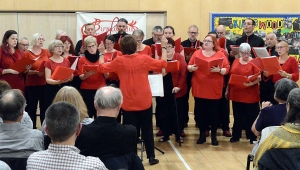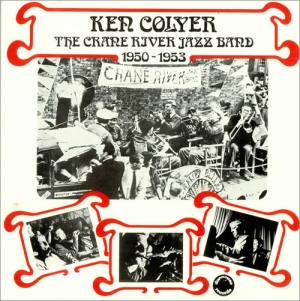
Paul Robeson: activist, communist and spokesperson for the oppressed of the earth
On the 120th anniversary of Paul Robeson's birth, Jenny Farrell tells the story of his life.
"The artist must take sides. He must elect to fight for freedom or slavery. I have made my choice. I had no alternative."
- Paul Robeson at a rally in London’s Albert Hall on 24 June 1937, in support of the democratically elected Spanish Republic.
Paul Robeson, son of an escaped slave, was born into apartheid America on 9 April 1898, 120 years ago. Best known as a bass-baritone singer, he was also an outstanding actor and consummate athlete, fighting against racial discrimination in sports. He was a fearless political activist in the struggles for emancipation at home, a supporter of all liberation movements, a friend of the Soviet Union and the socialist world. He sang in over 20 languages, including Chinese, Russian, and African dialects. He was the first singer to perform an entire programme of spirituals and songs of the African-American experience, giving them the recognition of a concert stage and making them known worldwide. Robeson was also the first to refuse to perform before segregated audiences. He was the first African-American actor to perform as Othello in the US, based on his ground-breaking interpretation of this character and the first in Britain since Ira Aldridge in the 19th century. He was the most significant African-American actor in the US on stage and screen and first African-American actor to gain international prominence, bringing dignity and respect to African-American characters. He was a worldwide symbol of the artist as activist and spokesperson of the oppressed of the earth.
When he died in 1976, he lived in seclusion with his sister in Philadelphia, standing firm on all his political convictions, yet never having fully recovered from the enormous pressure of the witch-hunt against him. The responsibility for this tragic trajectory lies with the racism and anti – communism of the McCarthy era.
Robeson met and married Eslanda (Essie) Goode, first African-American analytical chemist working at Columbia Medical Center in New York, activist, writer and orator, in 1921. When it became clear he could not work as a lawyer because of racism, he began his singing career in the mid-1920s with radically new interpretations of spirituals. The spirituals express the hardship of slavery in biblical language, and often contain veiled messages and resistance. Thus, “Sometimes I Feel Like a Motherless Child”, not merely expresses Robeson’s own experience of losing his mother at an early age, but also describes the severance of families through slavery. Further, Robeson’s interpretation adds his father’s experience of those African-Americans who fled the South to escape from slavery. Another spiritual, “Go Down Moses”, celebrates the release of the Israelites from captivity, something Robeson’s audience understood referring to their own freedom.
A turning point in Robeson’s life were his years in London, 1927-39. Here, he formed his outlook on world affairs, became an internationalist, fully embraced socialism, identified with the oppressed working class, regardless of colour. In London he discovered Africa and forged life-long friendships with Jomo Kenyatta, Nkrumah, Azikiwe (also, the future Indian leader Nehru) – and African seamen in the ports. Robeson began to study African culture, learn African languages, and embrace languages as gateways to the nations of the world: “It is fascinating … to find flexibility and subtlety in a language like Swahili, sufficient to convey the teachings of Confucius”. He also came to realise that alongside “the towering achievements of the cultures of ancient Greece and China there stood the culture of Africa, unseen and denied by the imperialist looters of Africa’s material wealth … and I came to learn of the remarkable kinship between African and Chinese culture.” Robeson indeed went on to develop a theory whereby a universal pentatonic tonality links musical folk cultures across the continents.
Robeson worked as a celebrated actor and singer in London, playing Othello and other important roles. During these years, he came to realise one could not rely on middle-class African-Americans in the emancipation struggle, recognising their dependence on their White masters. Robeson grasped that the lives of the oppressed were connected, evident in their music, and that alliances must be forged across geographical and racial differences, along the lines of class. He joined the working-class Unity Theatre in London, in an effort to help build workers’ theatres and develop a working-class culture in its full meaning.
Concomitantly, Robeson became active in the political issues of the time: the Spanish Civil War, anti-fascism, and the liberation struggles in Africa and Asia. Indeed, he became the supreme emblem of this global battle for emancipation. Through his interest in Africa, Robeson looked to the Soviet Union, which had overcome the backwardness of Czarist Russia. He first went there in 1934, struck by “a place where coloured people walked secure and free as equals” - he arranged for his son to attend school in Moscow for two years, a fact cited later as a reason to withdraw Robeson’s passport. Robeson learnt Russian to perfection and felt great empathy with the USSR.
Robeson sings the Song of The Volga Boatmen
Robeson’s journey to Spain in 1938 was a milestone in his life: “I sang with my whole heart and soul for these gallant fighters of the International Brigade. A new, warm feeling for my homeland grew within me as I met the men of the Abraham Lincoln Battalion … My heart was filled with admiration and love for these white Americans, and there was a great sense of pride in my own people when I saw that there were Negroes, too, in the ranks of the Lincoln men in Spain.”
His partisan involvement in the Spanish Civil War shows Robeson’s courage in the international struggle against fascism. In beleaguered Madrid, the Republican forces used Robeson’s music as a weapon, broadcasting it through loudspeakers to the fascist trenches.
When Nazi Germany invaded Poland in 1939, the Robesons returned to the struggle in America, only delaying for Paul to finish filming The Proud Valley, a film about an African-American becoming one of a mining community in Wales, filmed on location in the coalfields. This film, he “was most proud to make”, forged a deep bond between Robeson and the Welsh.
Back in the US, acting was an important source of income, e.g. playing Othello in the incredibly successful Broadway production in 1942/43, whilst continuing his political commitments.
In the US, Robeson used his celebrity effectively, in a prolonged campaign against segregation, heralding the boycotts of the civil rights era. He headed the anti-lynching movement, leading a delegation to the White House. When Truman refused to act, Robeson, in December 1951, presented a petition “We charge Genocide” to the United Nations, on behalf of the Civil Rights Congress, charging that the U.S. violated Article II of the U.N. Genocide Convention by failing to prevent the lynching of African-Americans.
At the Paris Peace Convention in April 1949, he stated: “It is unthinkable that American Negroes could go to war on behalf of those who have oppressed them for generations against the Soviet Union which in one generation has raised our people to full human dignity.” This speech resulted in a witch-hunt against him. In August 1949, the notorious racist and anti-communist assault took place at Peekskill, thwarting a concert which had been organised with Howard Fast and Pete Seeger. It left many seriously injured.

Angry locals from Westchester County, New York shout hate-filled insults at the carloads of concert-goers arriving to hear the singer Paul Robeson, the most famous African-American of the day, perform at an open-air concert in Lakeland Acres, north of Peekskill, on September 4th, 1949. A state trooper smirks and does nothing. Photo: History Today.
This his unyielding stand on the rights of African-Americans, and Robeson’s continued support of the USSR and world peace, led to his silencing. The state department withdrew his passport, and that of his wife and son, denying him the right to travel.
By 1952, Robeson was, according to Pete Seeger, “the most blacklisted performer in America”. No commercial hall was available to him, no producer promoted him, and his acting career finished. The FBI threatened concert organisers, shops and radio stations banned his records. From the height of fame, Robeson was turned into a non-person. From a career of intense activity he was blacklisted, deprived of public life and the source of his income. The African-American bourgeoisie failed to support Robeson, and colluded in this campaign.
He fought back by giving famous concerts, which circumvented the travel ban. He sang on the Canadian border to audiences on the other side. He gave transatlantic telephone concerts in England and Wales. The national ‘Let Paul Robeson Sing’ solidarity committee, the British Actors’ Equity Association and 27 MPs organised for Robeson to sing by telephone. This epic concert in St Pancras Town Hall on 26 May 1957, unforgettable for anybody who witnessed it, increased the pressure on the US government to return the passport.

In June 1958, years after taking his passport, the Supreme Court ruled that it was unconstitutional to deny a US passport on political grounds. Robeson immediately embarked on a worldwide tour, flying first to London. He sang to millions on television and radio and became the first lay person - and the first non-White - to take the pulpit in St Paul's Cathedral, with 4000 spectators inside and 5000 outside.
In the late 1950s, the world was changing, with African nations beginning to achieve independence. Robeson’s last concert tour in 1960, took him to Australia, where he gave the first recital at the Sydney Opera House - to the trade unionists who were constructing the building. He was the first to speak publically here about the oppression of the indigenous people by Europeans.
In Australia and elsewhere, Robeson sang “Ol’ Man River”, one of his best-known songs. Robeson changed the words of this song, originally written for The Show Boat, transforming it from acceptance of oppression to a song of resistance: the desire for freedom would prevail:
There’s an old man called the Mississippi,
That’s the ol’ man I don’t like to be.
What does he care if the world’s got troubles?
What does he care if the world ain’t free?
Tote that barge, lift that bale,
You show a little grit an’ you lands in jail.
But I keeps laffin’ instead of cryin’;
I must keep fightin’ until I’m dyin’,
And Ol’ Man River, he just keeps rollin’ along.
I would like to thank Christine Naumann, former curator at the Academy of the Arts Berlin, Paul Robeson Archives, for her advice.


